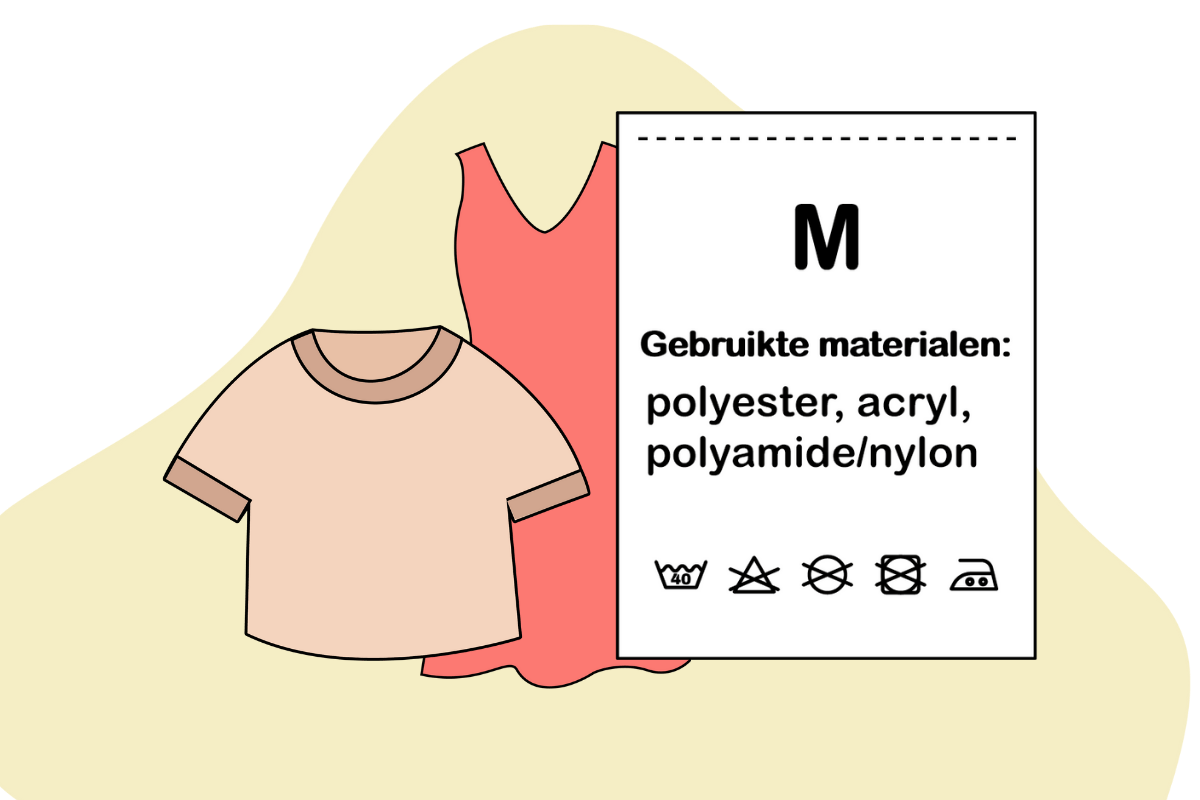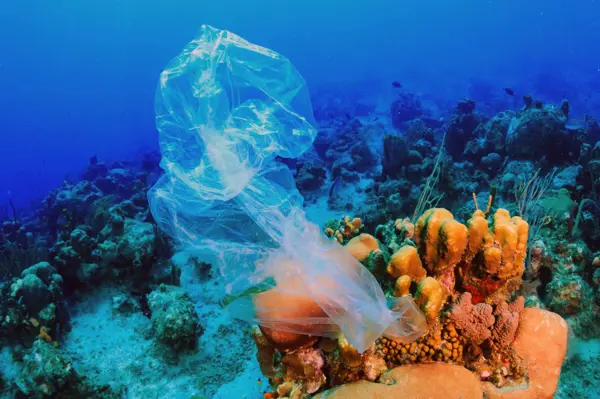Polyester, polyamide and nylon: just some of the fabrics that shine in many a closet. Synthetic materials that are elastic, quick-drying and wrinkle-free. Functional against sweat, but harmful to humans and animals. Because while the runner is running the lungs out of his body, he is also inhaling tiny particles of plastic floating through the air. Because yes, his running shirt is also one of the culprits.
Not only sportswear is made of synthetic material, but a whopping 70% of all clothing produced by fashion brands carries some form of plastic in it. From the elastic band in a mostly wool sock to the plastic nestle around a cotton shoelace. Not to mention fleece sweaters made entirely of (recycled) polyester.
Despite the aforementioned advantages, clothing made of plastic also has drawbacks. For example, an average of 9 million microplastics are released during every wash with a full five-kilogram drum. Particles that end up at the sewage treatment plant via wastewater and, mostly through the filtration system, are washed into lakes, seas and rivers: right into the habitat of the pollock, which - with all those micro- and nanoplastics in its stomach - ends up on your plate as a gourmet snack. So you not only inhale it, you eat it. If that doesn't give food for thought....
Want to protect yourself and the ecosystem from plastic pollution from your clothing? Then first of all, read the label when you buy a new garment. This will tell you what the garment is made of. If you see designations such as polyester, nylon, acrylic, polyamide or polyurethane, it is a synthetic material from which small particles wear off when washed as well as worn. Instead, choose a natural alternative made of cotton, jute, hemp or linen. And stay away from fast fashion: cheap, trendy garments that end up in landfills after a few wearings because it's broken. Instead, go for a timeless look, with which you can still ask your mirror the magical question in twenty years, like a true Snow White: mirror, mirror on the wall...
Even without plastic, you are the most beautiful person in the country.
Want to receive more tips to reduce plastic pollution in your clothes? Then download our fashion guide now . And donate, so we can continue our efforts to close the plastic tap of the clothing industry.
Rynaldo Koerhuis (b. 1995) consults, sells and writes. For Plastic Soup Foundation, he writes a blog twice a month on a current topic.



.png)


